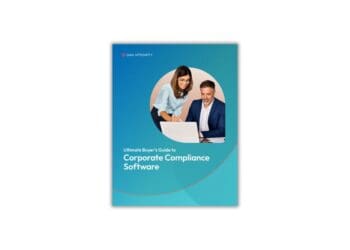Almost daily reports of increasingly sophisticated cyber breaches, global economic concerns, historic changes to accounting standards and growing anticipation for promised deregulation and tax reform are just a few of the topics being discussed in corporate boardrooms around the country. These issues and many more will make for an interesting annual meeting season this Spring.
BDO USA, LLP, one of the nation’s leading accounting and consulting firms, has compiled the following list of topics that corporate management and boards of directors should be prepared to address in connection with 2017 annual meetings:
Trump Administration
Initial initiatives of the Trump administration have been widely debated, but what isn’t up for debate is that changes are coming in one form or another. Shareholders will want to know that management is staying abreast of how these potential changes can impact the company’s bottom line and that contingency plans are in place to react accordingly. Specific issues that may be raised include:
- Deregulation. The administration has promised an easing of regulations and, via issuance of a sweeping executive order, further SEC action on implementing certain rules from the 2010 Dodd-Frank Act are now in question. Acting SEC Chair Michael Piwowar has asked for companies to comment on implementation challenges they are facing with respect to the recently effective Dodd-Frank CEO Pay Ratio rule and he is also having SEC staff review the Act’s controversial conflict minerals rule. Similarly, incoming SEC Chair, Jay Clayton, is expected to ease Dodd-Frank corporate disclosure requirements and possibly other regulations deemed to be too burdensome for small companies. This changing regulatory landscape needs to be monitored closely in order to plan effectively.
- Trade. President Trump has already withdrawn the U.S. from the Trans-Pacific Partnership and he has been a consistent critic of NAFTA and its impact on U.S. trade. Should the administration impose trade barriers and high tariffs, other countries are likely to retaliate, and U.S. exports could suffer. Exporters and importers need to monitor developments closely and plan for all possible contingencies.
- Tax Reform. The Trump administration is promising the most comprehensive overhaul of the U.S. tax system since 1986. Both House Republicans and the President want to cut the corporate tax rate and taxes on investment income, and they’ve each floated the idea of a border adjustment tax (a value-added tax levied on imported goods). However, compromises will be needed to accomplish reform, so businesses need to stay informed of these proposals as they are developed and be ready to pivot their tax strategies to align with the final law.
- Presidential Tweets. Boeing, Lockheed Martin, Nordstrom, Apple and multiple car companies are just a few of the businesses that have been the target of tweets from both candidate and, now, President Trump. While the long-term impact of these targeted social media attacks isn’t clear, businesses should review their foreign business interests, be aware of their federal contracts and have a rapid response plan in place to communicate how the company invests in America should the need arise.
Cybersecurity
The SEC recently announced an investigation of Yahoo’s failure to disclose a massive cyberattack – involving 500 million accounts – for nearly two years. The ongoing investigation has already led to a significant reduction of the purchase price in Yahoo’s pending acquisition by Verizon. This incident highlights a weakness in corporate cybersecurity – the failure to share information on cyberattacks with external entities – that threatens the safety of critical infrastructure and national security. In fact, a recent BDO Board Survey found that just one-quarter (27 percent) of directors say their companies are sharing information on cyberattacks with entities outside of their business.
In 2011, the SEC issued guidance for public companies on how to disclose cybersecurity incidents and, last year, the White House issued Presidential Policy Directive 41 outlining how businesses can contact relevant federal agencies about cyber incidents they experience. Shareholders may ask if the company has policies and controls in place for reporting material cyber breaches to the proper authorities.
New GAAP
Public companies should currently be preparing for the most historic accounting changes in decades. New accounting standards for revenue recognition (ASC 606) and lease accounting (ASC 842) will have a major impact on financial statements and profitability. Citing SAB 74 requirements, the SEC is expecting increased disclosures in 2017 regarding the impact of these new standards. Management, with board oversight, needs to communicate with shareholders, regulators and other stakeholders on these changes, to avoid unpleasant surprises when they impact financial statements.
Non-GAAP
Last Spring, with a growing majority of public companies using non-GAAP metrics in their financial statements, the SEC provided guidance on the appropriate use of these supplemental measures. In short, when providing non-GAAP disclosures in financial statements, management should communicate the reason for presenting the non-GAAP measure, be sure the information is not misleading or positioned as prominently as GAAP disclosures and that the metric is applied consistently across reporting periods. With the SEC already bringing charges against companies for improper use of non-GAAP measures, investors may want to know how the board is ensuring that management is following the SEC’s new guidance on these disclosures.
Whistleblower Policies
The Wells Fargo fake accounts scandal was a major news story in 2016. During the investigation, several of the bank’s employees alleged that they had communicated concerns about intense pressure to meet unrealistic sales targets, but were ignored. Some employees even claimed that they were fired for calling the company’s internal ethics hotline. These claims demonstrate that internal compliance programs only work in organizations that have created a responsive culture. A lack of response to an employee’s concern about unethical behavior is the easiest way to signal that management and the board are not interested in fixing the problem. Given the prominence of the Wells Fargo case, shareholders may ask:
- What the company is doing to communicate with employees about ethical standards?
- Whether the board and/or audit committee receive regular reports on internal whistleblowing complaints?
- What the board is doing to ensure that employee tips are not ignored or buried by management?
Virtual-Only Shareholder Meetings
In recent years, virtual-only shareholder meetings – conducted online or over the phone – have grown in popularity. In 2016, 187 companies used the services of Broadridge Financial Solutions Inc. to hold virtual shareholder meetings, compared to just 28 in 2010. This trend isn’t sitting well with all shareholders, as some groups have expressed concerns that the technology could be used to limit shareholder participation, allowing executives to cherry pick shareholder questions and avoid addressing critical issues. Given these concerns, boards that choose to conduct virtual-only shareholder meetings should consider communicating the cost savings and flexibility of the new technology, how it allows for more shareholders to attend the meetings and steps taken by the company to ensure full transparency.
Global Economic Concerns
Investors are well educated on how interrelated the world’s economies have become and are concerned how the U.K.’s exit from the European Union and other countries movement toward national protectionism will impact U.S. businesses in foreign markets. Shareholders will want to know whether companies with exposure in these countries (e.g., facilities, sales operations, third-party arrangements, etc.) are prepared for worst case scenarios.
Director Expertise, Diversity and Time
Boards and, more specifically, audit committees now grapple with issues ranging from cybersecurity to foreign corrupt practices to whistleblower claims. Shareholders may inquire whether the current audit committee has the appropriate experience, access to resources and time to address these increased responsibilities. They may also push companies to be proactive in addressing the issue of board diversity, as the SEC has begun to look into existing company disclosures on the racial and gender composition of their boards and could make such disclosures a requirement in the future.
M&A Opportunities
Despite the recent unsuccessful couplings of Kraft Heinz and Unilever and Aetna and Humana, in the current environment of reduced organic growth, businesses are expected to continue to turn to mergers and acquisitions to achieve growth in 2017. Shareholders will want to know if management is seeking out opportunities and that potential targets are properly vetted to avoid any surprises. Board should ensure their companies are equipped with sound integration policies for assimilating target businesses into a corporate culture supported by strong governance.
About BDO USA
BDO is the brand name for BDO USA, LLP, a U.S. professional services firm providing assurance, tax, financial advisory and consulting services to a wide range of publicly traded and privately held companies. For more than 100 years, BDO has provided quality service through the active involvement of experienced and committed professionals. The firm serves clients through more than 60 offices and more than 400 independent alliance firm locations nationwide. As an independent Member Firm of BDO International Limited, BDO serves multi-national clients through a global network of more than 1,400 offices in over 150 countries.
BDO USA, LLP, a Delaware limited liability partnership, is the U.S. member of BDO International Limited, a UK company limited by guarantee, and forms part of the international BDO network of independent member firms. BDO is the brand name for the BDO network and for each of the BDO Member Firms. For more information, please visit: www.bdo.com.















